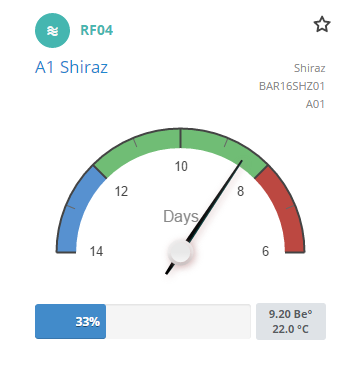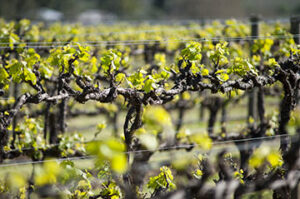Ferment Simulator now available
Understanding regional spray practices
Grapes needed for smoke taint background study
Regional sample drop-off locations sought
Order the latest AWRI staff publications online
Happy New (Events) Year! |
|
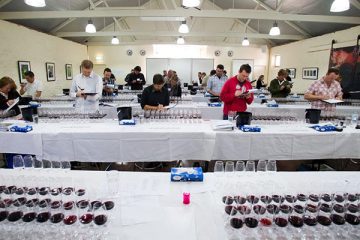 |
The AWRI would like to wish eNews readers a happy new year and all the best for vintage 2017! The events team has been busy planning the 2017 calendar, and is scheduling a wide range of events for grape and wine producers. The year is kicking off with a tasting workshop on Pinot Noir winemaking, being held across Australia in late January and early February. AWRI roadshow seminars also come to Tasmania in February. Then, following a break for vintage, the AWRI webinar program continues with presentations on closures and the effects of partial dealcoholisation. In late May/early June there will be two Advanced Wine Assessment Courses and a Wine Judging Course to develop tasters’ wine judging skills. And from May until the end of the year there will be a focus on the new roadshow workshop ‘Improving quality and reducing costs’ and AWRI roadshow seminars. The online AWRI events calendar is being continually updated – so please check back regularly to keep in touch with events in your region or contact the events team on events@awri.com.au or 08 8313 6600 if you have any queries. |
Ferment Simulator now availableThe AWRI has just launched an online version of its Ferment Simulator. This free app, hosted on the AWRI’s WineCloud platform, brings the power of the algorithms from the original Excel-based Ferment Simulator into a new online format designed for ease of use on both desktops and mobile devices. Ready to go for vintage 2017, the new Ferment Simulator can be used to store all ferment-related data. This includes baume and temperature readings, juice analysis, actions like pump-overs and additions, and any other analysis performed on the tank. The data collected feeds the algorithms which predict ferment endpoints and identify stuck or sluggish ferments to aid early intervention. Powerful What-If and What-Now modes allow modelling of corrective actions before going out to the tank. A digital archive of ferment data also allows users to search back through their ferment history, view old ferments and compare performance. The Ferment Simulator is available free for Australian wine producers – for more information and to register for an account, visit the Ferment Simulator webpage. |
|
Understanding regional spray practices |
|
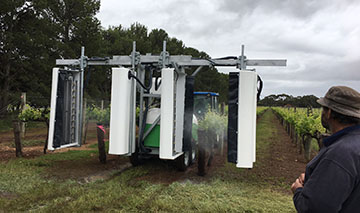 |
The AWRI has recently commenced a project looking at spray practices across Australia’s grapegrowing regions. By accessing anonymous spray diary information at the end of each season, it will be possible to understand the products and practices used in different regions, establish benchmarks for best practice and highlight opportunities for improvements.
Findings from the project will be disseminated through the new AWRI workshop ‘Improving quality and reducing costs’, with a presentation of spray data from the relevant region included in each workshop. Prior to each workshop, local input will be sought to provide context to the spray data in terms of the varieties planted and disease pressure experienced in that region. Case studies for growers will also be developed as the project progresses. For more information, contact the AWRI helpdesk on helpdesk@awri.com.au. |
Two yeast reviews publishedLate in 2016 two review articles on wine yeast were published by AWRI scientists. The first, titled ‘Yeasts found in vineyards and wineries’ and published in the journal Yeast, summarises the wide range of yeasts isolated from vineyards, wineries and ferments by scientists across the world. The second, titled ‘The impact of non-Saccharomyces yeasts in the production of alcoholic beverages’ explores research on the effects of non-Saccharomyces yeasts on the composition and sensory characteristics of wine and other beverages. It also looks at future opportunities involving interactions between yeast species and ways to express regional characters in alcoholic beverages. To request a copy of either of these two review articles, please contact the AWRI Information Services team on infoservices@awri.com.au. |
|
Grapes needed for smoke taint background study |
|
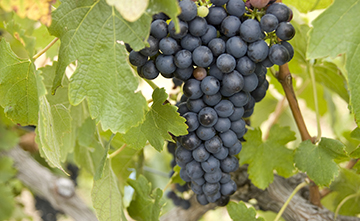 |
The AWRI is seeking 1-2 kg samples of grapes that have not been exposed to smoke as part of its continuing smoke taint baseline study. This study is working to improve the interpretation of smoke taint analysis of grapes. If you are able to contribute grapes, please contact helpdesk@awri.com.au. The samples will need to be picked about two weeks before harvest, frozen immediately and then transported to the AWRI post-vintage. The grape varieties being sought for 2017 are: Mataro, Sangiovese, Grenache, Merlot, Pinot Noir, Riesling, Semillon and Pinot Gris.
The smoke taint baseline study is collecting data on the natural ‘background levels’ of smoke taint compounds that are present in grapes that have not been exposed to smoke. Improved smoke taint analysis interpretations will enable winemakers to make better decisions about whether to accept/reject grapes that might have been exposed to smoke. If you can collect samples, the AWRI will send you sample bags, cable ties and labels, as well as information about shipment and possible quarantine requirements. All sample transport costs will be covered. To volunteer to provide samples or for any further information, please contact helpdesk@awri.com.au. |
Regional sample drop-off locations soughtAWRI Commercial Services is seeking to establish drop-off locations in regions across Australia. Grape and wine producers will be able to leave samples at these locations to be couriered to the AWRI laboratories. The goal of this service is not to compete with local providers of analytical services, but instead to provide easier access to services not available locally, such as smoke taint analysis and other advanced analytical techniques. The Hunter Valley is likely to be the first region to host one of these drop-off locations. It is expected that sample login and payment would be carried out by the customer through the AWRI’s web-based login service and would not require any input from the drop-off location provider. For more information or to express interest, please contact Dr Eric Wilkes (eric.wilkes@awri.com.au) or 08 8313 6600. |
|
Introducing ShowrunnerThe AWRI’s Advanced Wine Assessment Course last year introduced electronic scoring – a move that was positively received by participants and allowed the course to run more smoothly and efficiently. The in-house scoring software has now been expanded into a new system, known as Showrunner, that can manage all aspects of running a wine show – including online entries, electronic scoring and instant results. Showrunner was successfully used at the recent Hunter Valley and Orange wine shows and is available for other shows to use in 2017. Key features of the system include: the ability for exhibitors to enter wines across multiple shows, instant availability of results, capturing of both scores and comments from judges and the ability to calculate trophy winners. Showrunner is constantly being updated and improved based on user feedback, to ensure it will suit a wide range of wine shows across Australia. To find out more about Showrunner, contact Con Simos or Francesca Blefari on 08 8 313 6600 or events@awri.com.au. |
|
What’s new in eBooks?Six new eBooks have recently been added to the AWRI’s collection, with topics covering the China wine market, winery design and architecture, Burgundy, Bordeaux and biodynamic wine. To review the latest titles, visit the AWRI website and select from one of the two available eBook platforms. For further information on using the collection, please consult the online guides or contact the AWRI information services team. |
|
Order the latest AWRI staff publications onlineAccessing the latest AWRI publications is easy. Visit the AWRI Publications web page to:
A full list of AWRI publications published since the last eNews is included below: 1873 Varela, C., Borneman, A.R. Yeasts found in wineries and vineyards. Yeast doi: 10.1002/yea.3219; 2016. 1874 Hixson, J.L., Hayasaka, Y., Curtin, C.D., Sefton, M.A., Taylor, D.K. Hydroxycinnamoyl glucose and tartrate esters and their role in the formation of Ethylphenols in wine. J. Agric. Food Chem. doi: 10.1021/acs.jafc.6b04074; 2016. 1875 Kontoudakis, N., Smith, M., Guo, A., Smith, P.A., Scollary, G.R., Wilkes, E.N., Clark, A.C. The impact of wine components on fractionation of Cu and Fe in model wine systems: Macromolecules, phenolic and sulfur compounds. Food Res. Int. doi: 10.1016/J.foodres.2016.11.017; 2016. 1876 Stockley, C. Ask the AWRI: Wine consumption and brain health. Aust. N.Z. Grapegrower Winemaker (634): p. 82; 2016. 1877 Taylor, A.W., Shi, Z., Dal Grande, E., Stockley, C. The relationship between alcohol consumption and other risk factors assessed using an ongoing population-based surveillance system. AIMS Public Health 3 (4): 985-1002; 2016. 1878 Longbottom, M. ASVO acknowledges industry excellence and exemplary contributions. Wine Vitic. J. 31 (6): 10-11; 2016. 1879 Wilkes, E. Is it the closure or the wine? Wine Vitic. J. 31 (6): 22, 24-25; 2016. 1880 Bekker, M.Z., Smith, P.A., Wilkes, E.N., Johnson, D. Wine pH, copper and ‘reductive’ aromas in wines. Wine Vitic. J. 31 (6): 36-38; 2016. 1881 Stockley, C., Triggs, R. Wine labelling regulations reviewed – health-related and compositional claims, geographical indications and traditional expressions. Wine Vitic. J. 31 (6): 63-65; 2016. 1882 Pardo-Garcia, A.I., Wilkinson, K.L., Culbert, J.A., Lloyd, N.D.R., Alonso, G.L., Salinias, M.R. Accumulation of guaiacol glyconjugates in fruit, leaves and shoots of Vitis vinifera cv. Monastrell following foliar applications of guaiacol or oak extract to grapevines. Food Chem. 217: 782-789; 2017. |
|
AcknowledgementThe AWRI acknowledges support from Australia’s grapegrowers and winemakers through their investment body, Wine Australia, with matching funds from the Australian Government. The AWRI is a member of the Wine Innovation Cluster in Adelaide, South Australia. |
|




























